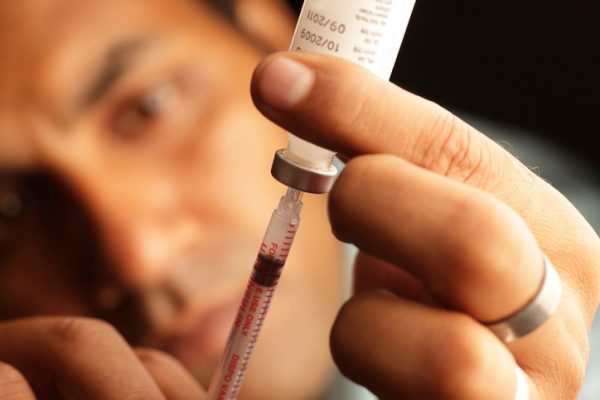
U.S. regulators have proposed loosening some of the clinical trial requirements for companies to win approval for biosimilar versions of insulin products, particularly as they pertain to evaluating whether or not the cheaper products can cause unintended immune system reactions.
The Food and Drug Administration announced Monday a draft guidance for companies developing biosimilar and interchangeable insulin products, with an eye on making that development more efficient. The agency said the guidance, open to comments from the public until Jan. 27, 2020, presents its updated thinking about testing insulin products for their potential to provoke immune reactions, known as immunogenicity.
In particular, drugmakers would not have to conduct clinical trials to evaluate their products for immunogenicity so long as robust and comprehensive analysis demonstrated they are highly similar to the proposed reference product, with sufficiently low remaining uncertainty about immunogenicity. In the past, the agency had generally advised such studies could be necessary for insulin products. Under the new draft guidance, they may still be necessary in instances such as when there are certain impurities or novel excipient ingredients that provoke uncertainty about immunogenicity, but that would be determined on a case-by-case basis.
“The FDA is committed to continuing our efforts to help increase market competition among insulin products, which may potentially lower costs for patents and payors and increase access and product choice,” acting FDA Commissioner Brett Giroir wrote in a statement on the draft guidance. “This includes facilitating the development of safe and effective insulin products for the treatment of patients with Type 1 and Type 2 diabetes, including products that are biosimilar to, or interchangeable with, an approved insulin product.”
Former FDA Commissioner Scott Gottlieb, who stepped down in March, had proposed creating a regulatory pathway for insulin biosimilars in December of last year. The high prices of many insulin products – particularly the pens and pumps that enable precise and convenient dosing – have resulted in many patients rationing insulin, which can lead to potentially deadly complications like ketoacidosis, whereby high blood sugar turns the blood acidic and causes the body to stump functioning.
The agency cited as influences on its updated thinking the relatively small, structurally uncomplicated and well-characterized nature of insulin compared with other biologics, clinical experience and literature confirming little to no clinical relevance of immunogenicity and scientific thinking on the lack of clinical impact of immunogenicity with insulin product use. In addition, it noted, the European Medicines Agency – the FDA’s counterpart for the European Union and European Economic Area – stopped recommending clinical immunogenicity studies for recombinant human insulin and insulin analogues to support biosimilar applications in 2015.

A Deep-dive Into Specialty Pharma
A specialty drug is a class of prescription medications used to treat complex, chronic or rare medical conditions. Although this classification was originally intended to define the treatment of rare, also termed “orphan” diseases, affecting fewer than 200,000 people in the US, more recently, specialty drugs have emerged as the cornerstone of treatment for chronic and complex diseases such as cancer, autoimmune conditions, diabetes, hepatitis C, and HIV/AIDS.
Photo: eromaze, Getty Images












